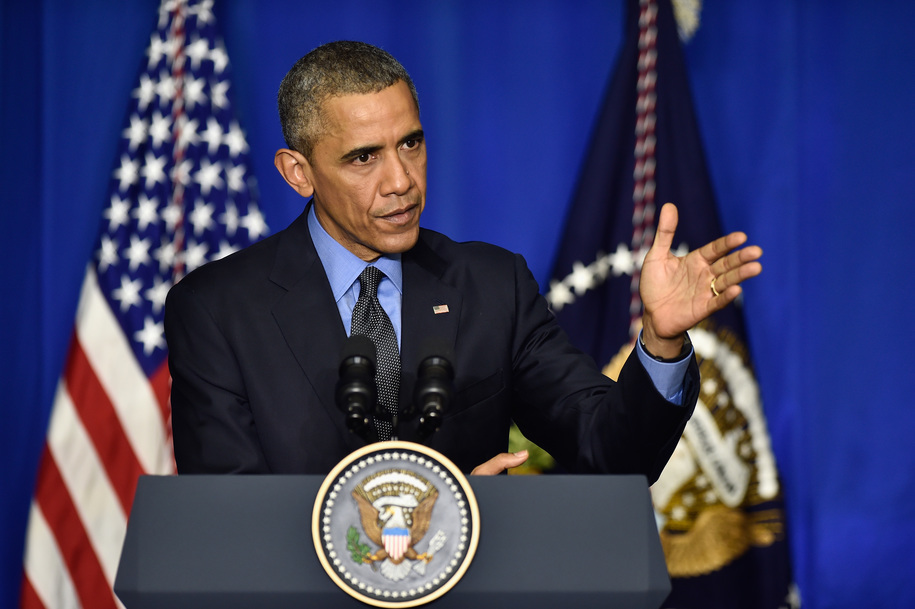
Placing drones in historical context
This article responds to arguments presented by Professor Steven Coll in multiple articles for The New Yorker.

Barack Obama followed a “small footprint” foreign policy doctrine. The US became increasingly reliant on the use of unmanned, aerial drones to maintain security and project military power. In “The Unblinking Stare,” Steve Coll, of Columbia University, critiqued the Obama administration for its failure to acknowledge collateral damage inflicted by US drone strikes in Northern Pakistan. Coll argued that Obama should enforce “transparency and accountability” for drone strikes; doing so would champion a “higher [moral] standing” than the corrupt Pakistani government. This article will briefly contest Coll’s argument. Using examples from the Cold War-era, this article will argue that the US has not—traditionally or necessarily—enforced “transparency.” Additionally, perceptions of US policy as “accountable” to a “higher standing” are incompatible with ideas of American exceptionalism.
Contemporary drone policy originated from US containment strategies during the Cold War. In most operating theatres, drones replaced conventional aircraft for surveillance and air strikes as they were more efficient, cheaper, and almost entirely deniable if shot down. Coll argued that—in an Orwellian style—the threat of drone surveillance was often enough to deter enemies. The transition from conventional to (semi-) technological/air warfare, with an emphasis on economy, practicality, and deterrence resembled Eisenhower’s “new look.” Drones’ legal deniability allowed the US to respond to threats without major international consequences, similar to “flexible response,” and deterrence produced through unpredictability derived from Nixon’s Madman Theory.
The 1947 National Security Act established the offices and guidelines that directed US foreign policy in the post-war world (e.g., CIA, DoD). Steve Coll mentioned that the Act “legalized covert action as long as the president finds that it does not violate the Constitution or US law.” This principle undermines Coll’s claim that the US should operate according to a higher standing, including transparency and accountability; this fundamental principle of the Security Act established that the US was not accountable to global/universal standards (or law)—US security interests superseded other states’ interests.
Coll argued that utility/efficiency of drones (“relative precision”) clouded US policymakers from acknowledging the unintended/negative consequences of drone operations. Similar principles—positive US intentions outweighing the consequences of US intervention/means—were endemic to Cold War policymaking. For example, Robert McNamara attempted to rationalize the Vietnam war by claiming the “values and intentions” for the war were positive, despite their disastrous application in the country.
The US government attempted to disguise controversial operations throughout the Cold War: Harry Truman blocked gruesome footage from Hiroshima/Nagasaki; the Eisenhower administration used U2 spy planes for observation (a precursor to drone surveillance); Kennedy covered up US missiles in Turkey; and the US attempted to conceal the brutality of its forces in Vietnam (e.g., My Lai). There are many other examples.
In conclusion, the Obama administration’s choice to hush the drone program was not unique. In US Cold War policy, security objectives superseded most other considerations. US policy covered up controversial/clandestine operations and believed that US “values” justified the negative consequences of operations abroad. The drone program operated on similar principles: the destruction of Al Qaeda was an imperative that seemingly justified operations’ means and consequences. “Transparency and accountability” should not be uniquely enforced for drones: traditionally, the US has only held its policy accountable to American principles/values (exceptionalism). Despite the new and unique consequences of drone warfare, the Obama administration was simply following preceding administrations’ direction.
Sources
United States Dept. of Defense. Sustaining U.S Global Leadership: Priorities for 21st Century Defense. January 2012, p. 9. <http://archive.defense.gov/news/Defense_Strategic_Guidance.pdf>
Steve Coll, “Obama’s Drone War – The New Yorker.” The New Yorker. 24 Nov. 2014. <http://www.newyorker.com/magazine/2014/11/24/unblinking-stare>
Steve Coll, “Remote Control – The New Yorker.” The New Yorker. 6 May 2013. <http://www.newyorker.com/magazine/2013/05/06/remote-control>.
Robert S. McNamara. In Retrospect: The Tragedy and Lessons of Vietnam (New York: Time Books, 1995), p. 16.
